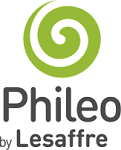
Alain Riggi, Global Poultry Manager explains how his projects at Phileo by Lesaffre are in the continuity of the Act with Nature campaign.
“The projects I am working on at Phileo are based on the development of natural products, I mean substances or organisms already existing in nature, like yeast derived products, telluric bacteria and bacteriophages. Animal health is based on a certain balance based on good farm management for better welfare, and the use of solutionsPhileo developed. In fact, we only let the benefits of nature act positively on animals, to reinforce their resilience and reduce the risk of disease occurrence. I am really happy about the Act with Nature campaign, which reaffirms our will to guide customers and farmers to keep producing good quality meat, eggs and milk with more naturality.”
Producing good quality meat resonates with our goal to ensure food safety and raise the standards to another, safer, level. food safety is a top priority within our industry. Alain Riggi explains:
“Food safety is an important concern for our customers. As professionals, they are responsible for the sanitary quality of products they sell to consumers. Phileo did several trials on broilers or layers with Safmannan. These trials confirmed the capacity of Safmannan to reduce the number of Salmonella in poultry by at least one Log (i.e. at least 10 times less). Safmannan binds this bacterium and it is excreted with the feces onto the litter.
To complete Safmannan’s effect and prophylactic measures, Phileo develops other products, based on probiotic bacteria like Bacillus, or based on bacteriophages, which have a more direct and specific effect on pathogens, as they can inhibit their growth or they can even kill them. The overall objective of these projects is to reduce drastically the presence of such a pathogen in poultry gut, and thus to reduce the risk of carcass contamination at the slaughterhouse.”
In order to achieve food safety and prevent animals and, in turn, humans from certain diseases, the topic of ATB should also be raised. In recent years, there has been a sharp tendency to reduce the use of antibiotics after discovering its dangerous impact on human health.
“For many years, some antibiotics were used to treat or prevent animal diseases. Others were used at subtherapeutic dose as growth promoters (AGP). This led to the rising of antimicrobial resistance (AMR) for pathogenic bacteria, and especially for six pathogens which developed plasmidic or chromosomic mechanisms to escape from the effect of antibiotics. Different studies were done to evaluate the consequence of such a resistance. If no action is taken, the burden of deaths from AMR could reach up to 10 million persons each year by 2050, and the cumulative cost to the global economic output could represent more than 100 trillion US$. The question is not to ban completely all antibiotics use in animal production, but to use them more carefully: to use antibiotics for their real antimicrobial activity, when no alternative can help, on animals suffering from bacterial disease and after an antibiogram.”
Food safety and ATB showed the tight link between animal and human health. This correlation led to the One Health approach. Alain Riggi explains:
“One Health is a framework created by the United Nations (UN), based on the assumption that human health depends largely on what can affect animal health and ecosystem. Like Climate change already has an impact on water and food supply, and emergence of zoonotic diseases can increase the risk of human pandemics like avian Influenza.
It is why the UN have decided to help several organisations to work together, to take collective actions and speak with one voice: the World Health Organisation (WHO), the World Organisation for Animal Health (OIE), the Food and Agriculture Organisation (FAO) and the United Nations International Children’s Emergency Fund (UNICEFhave a common goal to reduce antimicrobial resistance (AMR) in humans and animals.
Phileo is involved in 2 programs which belong to the One Health approach. In Vietnam, Phileo helps stakeholders in the Viparc project to educate farmers and pharmacists reduce the use of antibiotics and proposes alternative like Safmannan in small scale farms. Phileo, in collaboration with Vaxinano, also submitted a project to the Innovet AMR call in Canada. Innovet funds projects which help reduce antibiotics in low- and medium-income countries. This project is based on the use of Safglucan and new vaccine technology to improve E.coli disease prevention in poultry farms.”
With very exciting projects ahead, Phileo by Lesaffre is dedicated to work towards more food safety, a reduced use of antibiotics, while trying to contribute to the One Health ambitious program. Thank you Alain Riggi for taking the time to answer our questions 💡




